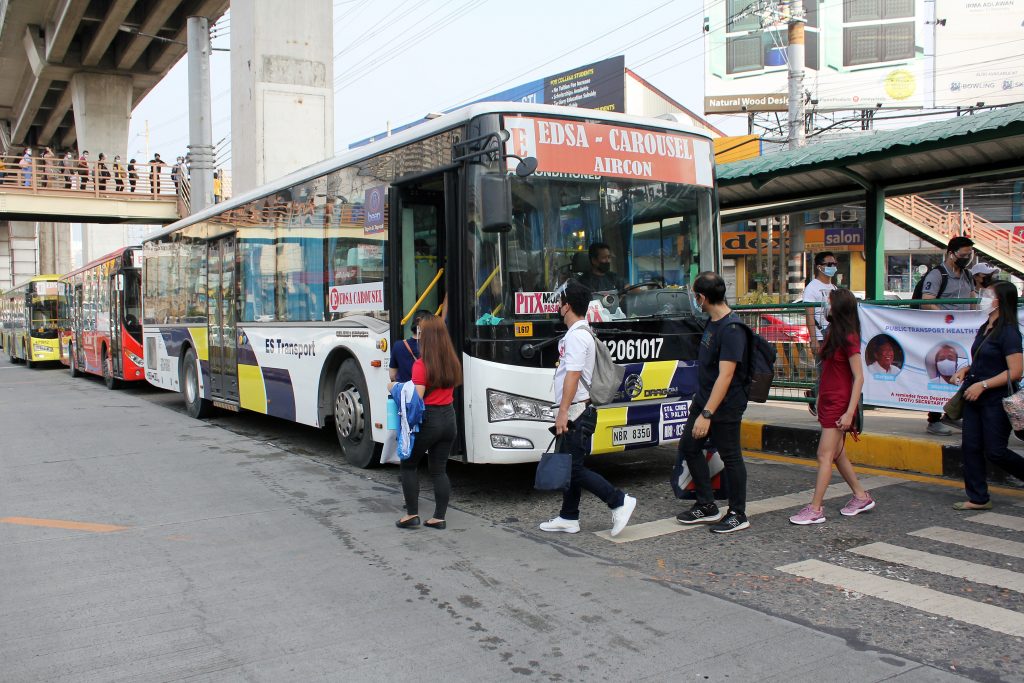News
Current public transport capacity in ECQ areas retained

MANILA – The current public transport supply and capacity will be retained in the National Capital Region (NCR) during the imposition of the enhanced community quarantine (ECQ) from August 6 until 20.
In a news release, Transportation Secretary Arthur Tugade said the latest Omnibus Guidelines approved by the Inter-Agency Task Force for the Management of Emerging Infectious Diseases (IATF-EID) have allowed the continued operation of public transportation at a certain capacity.
Only Authorized Persons Outside Residence (APORs) as identified by the IATF-EID will be accommodated by public transport services.
“Restrictions will be applied on passengers. There will be stricter enforcement to ensure that only APORs are permitted to use public transport, as mandated by the IATF,” Tugade said. “APORs are reminded to be ready to present to transport marshals identification cards issued by the IATF or other documents or IDs as proof that they are authorized to travel.”
Tugade, however, clarified that the IATF may make changes on the number of public transport vehicles to be allowed during the ECQ period and the number of commuters to be allowed in public transport.
“But, should the IATF decide otherwise, we will abide,” Tugade added.
During the ECQ, public transportation and all other modes of transportation – privately-owned, with a special permit, and/or dedicated service under the government initiative, etc., should observe the prescribed physical distancing and sanitary measures.
Public utility vehicles, such as buses and jeepneys are allowed to operate at 50 percent capacity on a “one-seat-apart” setup. Standing passengers are not allowed and only one passenger will be allowed at the driver’s row.
Motorcycle taxi services and Transport Network Vehicle Service operations are allowed during the ECQ period.
The use of active transport, such as bicycles and electric scooters, is encouraged.
For tricycles, passenger load shall not exceed one passenger in the sidecar. Further, the operations of tricycles should be approved by the Department of the Interior and Local Government and the local government units in compliance with the existing policies on its operational limitations.
All trains of the Philippine National Railways, LRT-1, LRT-2, and the MRT-3 will be deployed during the ECQ period.
All trains would have transport marshals to enforce health protocols and to identify APORs. Trains will also be disinfected after every loop.
Transport marshals inside the trains will also strictly enforce health and safety protocols which include the wearing of face shields and masks at all times; compliance to the “no talking and eating’ policy; ensuring adequate airflow and ventilation; and enforcement of social distancing, as well as proper disinfection and sanitation.
Passengers showing symptoms of Covid-19 will not be allowed to board trains and temperature checks will be done at station entrances.
Domestic flights and sea travel in the NCR will also continue, subject to community quarantine restrictions of the destinations.
Passengers are advised to inquire with their airlines or shipping lines/RoRo about the status of flights/sea travels and if they are allowed to board such flights before going to the airport or seaport. (PR)





















